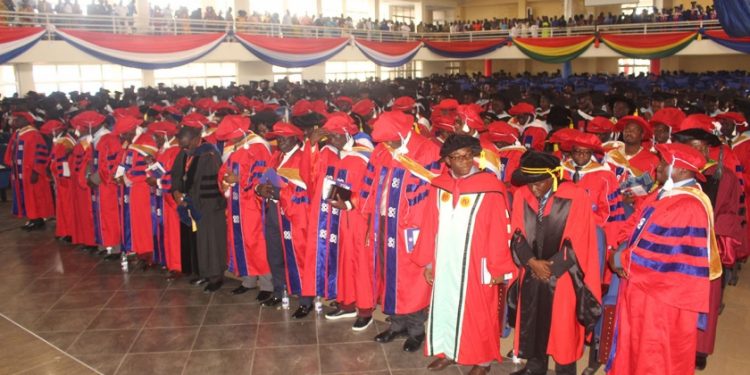A professor of Educational Leadership and Management at the University of Cape Coast, Prof. George K.T Oduro has stated that government’s representation in the Public University Bill will allow political party representation where partisanship would override expertise.
According to him, the representation basically means that political parties will dominate the university councils regardless of their expertise.
“In Ghana when we talk about government it is not about expertise but political party representation; if you don’t belong to a political party or not in the ruling party then your expertise does not matter and it is an indirect way of entrenching political party infiltration into the operations of the universities”, he said.
Prof Oduro noted that the recent Acts and statutes that regulate the governance of public universities have no flaws that require any change. What he believes must be given attention to, is the political interferences in the governance systems of universities.
Read this too: Public university bill, operationally suppressive – Prof G.K.T. Oduro
He again stressed that there is no need to have a “harmonise centralized system of university governance in the country”. According to him, universities must be allowed to have their autonomy in order to be able to work towards achieving their intended purposes for which they were established without any form of interference.
In 2019, the Akufo-Addo led government through the Ministry of Education released the Public University Bill to provide the procedure for the establishment of public universities; the legal status of public universities; the procedure for financing public universities; and the administration and supervision of activities of public universities.
However, the Public University Bill since its introduction has been met with numerous opposing views with majority claiming it is the government’s intention to make public universities non autonomous and hinder academic freedom.
On his part, Prof. Apiagyei-Attua at the University Of Ghana School Of Law has stated that it is rather shocking on the part of government to try to destroy the governance structure of public universities instead of preserving it.
According to him, the constitution has not been respected because it clarifies under article 1953 that the universities are given the power to deal with appointments to offices within the universities and that is what is supposed to regulate the appointment of council members as well as the chairman of council.
”For a government that prides itself in its human rights record, it is a bit of a shock that the government should go this low by trying to compromise university governance and academic freedom”, he said.
Prof. Apiagyei-Attua further states that the bill could also affect the promotion of academics because any academic who may not be in the good books of the government could be sidelined as the majority of council members would be government appointees.
Some of the proposals in the Bill grant the President power to dissolve the university Council, allow the university Council to appoint a Chancellor and allow unions to appoint only one representative on a rotational system to serve on the Council at each cycle.
Source: Lydia Sekyi Acquah/ATL FM NEWS



























